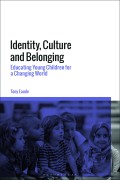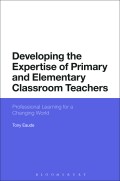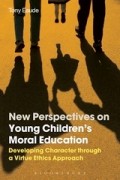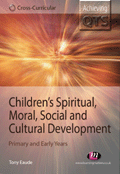This page describes in more detail some of the projects on which New Perspectives … has worked and associated reports or resources.
- Primary education: A literature review
New Perspectives …was commissioned in 2013 by the International Baccalaureate to conduct a literature review and write a report to inform a review of its Primary Years Programme (PYP). The brief was to ‘conduct a comprehensive search and systematic review of literature on primary education in relation to the written curriculum and taught curriculum for students aged six to twelve years.’ Three main questions were addressed:
What have been the main political, social and cultural influences, and the key trends evident across different countries and jurisdictions, in relation to the written and taught curriculum in the primary years since 2003?
What are the key theoretical lessons from research, especially since 2003, about children’s learning in the primary years, and their implications for the written and taught curriculum?
How might the aims of the IB and its current PYP be affected by the influences and trends identified and how does it, and could it best, take account of the lessons from research about young children’s learning?
The final report is available on ibfinalreport (pdf, 1352K)
- Evaluation of the Islamic Studies Network
New Perspectives …was commissioned in 2012 by the Higher Education Academy to evaluate the Islamic Studies Network, a three year project to enhance the work of academics working in Islamic Studies. Dr Tony Eaude, working with David Wood of David Wood Consulting, undertook this work and the final report, with an executive summary, is available on Islamic Studies Network Evaluation Reports
- 6s&7s
The National Education Trust commissioned Tony Eaude to evaluate 6s&7s, an affordable early intervention programme with groups of six children in primary schools, led by two tutors (usually learning support assistants), for six tutorials. The training and support is intended to enable the tutors to run 6s&7s in their own school. 6s&7s is designed both:
- to help to improve the social skills, confidence and emotional well-being of young children who are not confident learners; and
- to assess which children require further support to learn how to improve their relationships with other people and their behaviour.
This approach is in line with the Government’s growing recognition of the importance of young children’s social and emotional development, contributing both to improved mental health and enhanced educational achievement.
This evaluation was in three phases, starting with a preliminary report produced in August 2008 based on one cycle of training in Birmingham. The main report was in August 2009, based on two further cycles of training in Birmingham and one in Gloucester. The third report was completed towards the end of 2009, based on an analysis of the impact of 6s&7s about six months aftet the conclusion of the programme. For further details about 6s&7s, contact the National Education Trust.
- Anti Bullying Fortnight in Oxfordshire
This was a two-stage report for Oxfordshire County Council, with Stage 1 focussing on the immediate impact of Anti Bullying Fortnight in November 2008 and Stage 2 considering the longer-term impact, but in particular considering how such strategic initiatives should be focussed to be of greatest help to schools. The final report was submitted in July 2009.
- The Weekend Opening of Youth Centres in Oxfordshire 2008/9
This was a two-stage evaluation for Oxfordshire County Council of the Weekend Opening of Youth Centres. It was fascinating to work in a culture where I had little experience and to explore both how a new short-term initiative was being implemented and how its impact could be assessed, especially given the lack of reliable data and the difficulty of isolating the impact of one initiative which forms only part of a complex multi-agency approach. The final report was submitted in August 2009.
- Sports Coach Mentoring
This small evaluation, for Oxfordshire County Council, was of the employment of a Sports Coach Mentor with a particularly difficult Year 6 in a primary school near Oxford. It concludes that such a post was very effective but that one of the most important aspects is to consider the times and places when there is the greatest risk of disruption and the personal qualities of the mentor, rather than gender, age or qualifications as such. The report can be seen at sports coach mentor (pdf, 53K)
- Institutional Quality Standards
Acting as a consultant to Oxford Brookes University, Dr Tony Eaude led a team of three in conducting an evaluation, commissioned by the Department for Children, Schools and Families, of the impact of Institutional Quality Standards -a way of schools self-evaluating their provision for gifted and talented students and how this contributes to the wider process of self-evaluation. This was completed in April 2008 and there has been a subsequent review of the text and support materials. For further information, please contact tony@edperspectives.org.uk
- Planning, Preparation and Assessment Time in Primary and Nursery Schools – Implementation and Impact
Dr Tony Eaude acted as the research consultant to the Oxfordshire County Council Children’s Services Scrutiny Review of the impact of Planning, Preparation and Assessment (PPA) time in primary and nursery schools. This started in January 2007, with two main elements of evidence gathering, a series of questionnaires for headteachers, teachers, school support staff and governors, followed by visits to schools and discussions with witnesses. The draft report and summary were completed early in May 2007. These were accepted by the Committee and the Cabinet in July 2007. The summary and the full report can be downloaded from ppasummary (doc, 62K) and ppareport (doc, 295K) respectively.
- Faith in Our Schools
‘Faith in Our Schools’ is a report commissioned by Oxfordshire County Council ‘s Learning & Culture Scrutiny Committee, initially set up to formulate an evidence-based report to provide the basis of a response to a request for a Muslim secondary school in Oxford. The four members of the group asked Tony Eaude, working initially with Professor Richard Pring, and subsequently on his own, to provide an academic perspective over a period of some six months. A first paper set out the issues drawing on the academic literature and provided some essential statistics. Following a number of sessions with expert witnesses, a second paper helped to steer the Committee in the next phase, involving more witnesses and visits to schools, and consultation with a range of interested groups, notably the local Muslim community. The final report reflected the group’s view that the initial question could not be adequately answered without considering the role of faith schools, and of religious faith in all schools. The full Committee accepted the report and its recommendations with only minor amendments and additions, with several members commenting on the quality of the writing. The Executive of the County Council in July 2005 decided not to adopt any of the recommendations except the first (amended slightly) on the broad principles. For the full text of the report, see http://www.oxfordshire.gov.uk/faithschoolsreview.pdf (pdf 767 kb)
- Primary Innovation Project through Action Research (PIPAR)
The Primary Innovation Project through Action Research (PIPAR) was a three-year national project funded by the DfES and completed in 2004. Eighteen primary schools with a wide geographical spread and range of catchment had been chosen to develop and examine their provision in relation to Gifted and Talented pupils through an Action Research approach. Since the project leader had left Oxford Brookes University, Tony Eaude was commissioned by the University to complete the final stages of the project. As well as reporting to the DfES and the University, this involved giving training and detailed advice on writing case studies (of what each school had done in developing provision for the Gifted and Talented) and action research reports (researching more systematically a particular aspect of provision for the gifted and talented).
Although the reports were sent to the DfES in October 2004, they have still not been put on the DfES website and it is probably fair to assume that they will not be. It is suggested therefore that those interested contact tony@edperspectives.org.uk
The course New Perspectives on gifted and talented children draws on the expertise gathered by Tony Eaude’s involvement in PIPAR.
- The Art Room
The Art Room is a small charity based at the Oxford School, set up to help children finding it difficult to engage in both primary and secondary mainstream schools. The children and young people attend on a basis of up to two sessions a week for one term, with the main focus making brightly coloured artefacts, but in an atmosphere where theri emotional and psychological needs are attended to. Tony Eaude, working with Sue Matthew, was commissioned to conduct an evaluation of the Art Room’s work and to make recommendations both on the provision and future pathways towards financial security. The report, ‘Making Space for Re-Engagement’, funded mainly by the Calouste Gulbenkian Foundation, can be downloaded as Art Room evaluation final report (pdf, 522K) . An eight-page summary in hard copy is available by contacting Tony Eaude.
- Sustaining Emotional Literacy
This report, completed in 2006, is an evaluation of Family Links, an organisation which works with young children and their parents to develop emotional literacy, using the Nurturing Programme. The intention was to evaluate the success of the Nurturing Programme in schools where it had been operating for at least one year.
The methodology was in two parts:
-a survey of 127 schools in six different geographical areas gathering data about the school and quantifiable outcomes and asking four different people to complete a questionnaire about the impact of the Nurturing Programme;
– day visits to twelve schools, six where the school regarded itself as fully involved and six where it was partially so.
Put briefly, the evaluation concluded that the Nurturing Programme had worked very well in terms of most of what it set out to achieve with children but that this benefit tended to diminish over time and that it was more appropriate with children in Key Stage 1 than Key Stage 2 where there is scope for introducing new approaches especially in terms of some ‘harder’ issues. However, this benefit could not be evidenced from the quantifiable data. The work with parents was very successful where sustained but hard to sustain.
The executive summary is available on Family Links summary (pdf, 107K) . Should you wish to read the full report, please contact Tony Eaude, who will need to secure the permission of Family Links.





